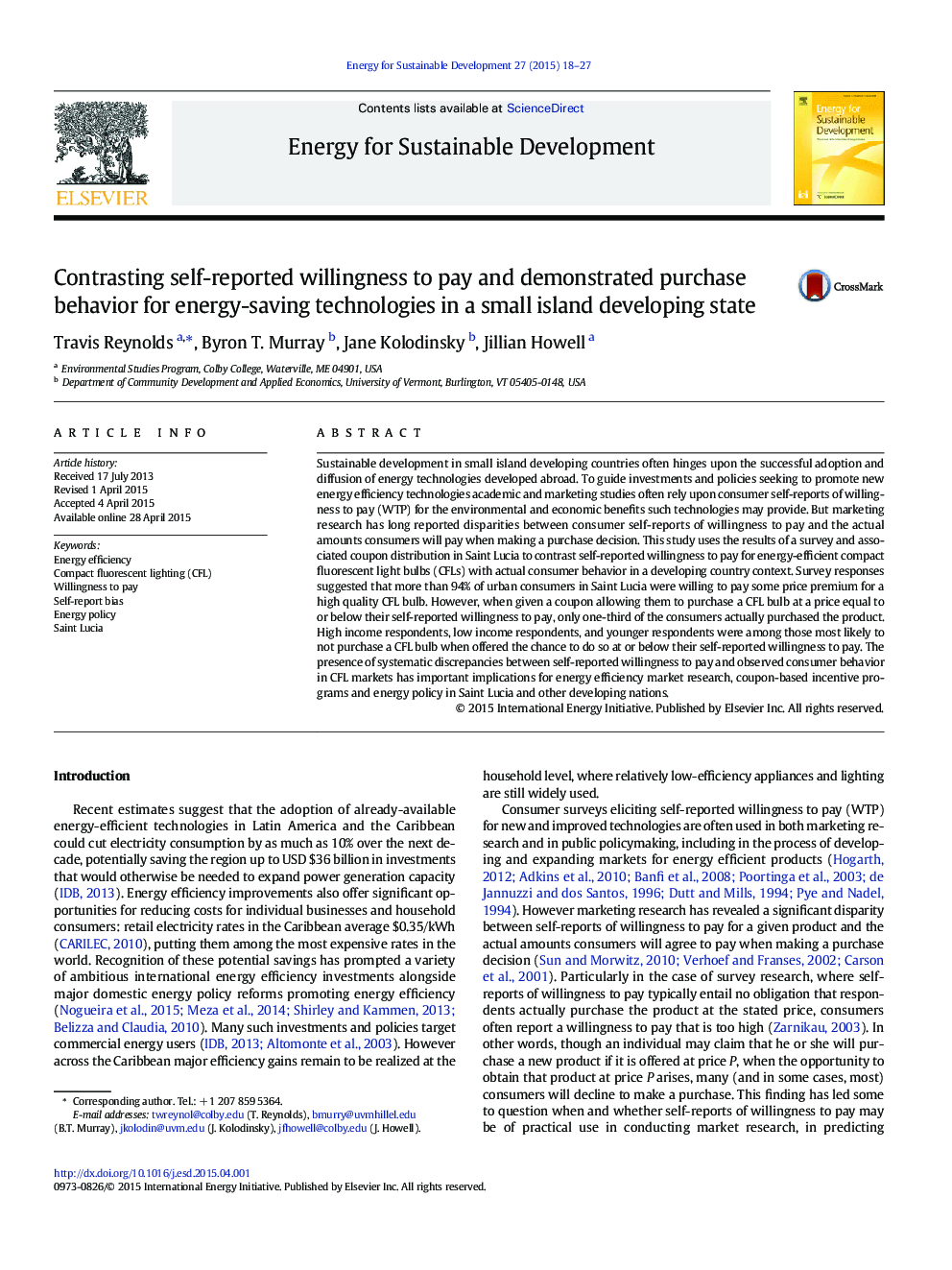| Article ID | Journal | Published Year | Pages | File Type |
|---|---|---|---|---|
| 1046868 | Energy for Sustainable Development | 2015 | 10 Pages |
•An energy efficiency survey and coupon distribution was carried out in Saint Lucia.•Surveys asked willingness to pay (WTP) for quality compact fluorescent bulbs (CFLs).•Self-reported WTP was compared with behavior using a tracked coupon distribution.•When offered a CFL below their stated willingness to pay only 37% of consumers paid.•Low-income, high-income, and young consumers most overstated willingness to pay.
Sustainable development in small island developing countries often hinges upon the successful adoption and diffusion of energy technologies developed abroad. To guide investments and policies seeking to promote new energy efficiency technologies academic and marketing studies often rely upon consumer self-reports of willingness to pay (WTP) for the environmental and economic benefits such technologies may provide. But marketing research has long reported disparities between consumer self-reports of willingness to pay and the actual amounts consumers will pay when making a purchase decision. This study uses the results of a survey and associated coupon distribution in Saint Lucia to contrast self-reported willingness to pay for energy-efficient compact fluorescent light bulbs (CFLs) with actual consumer behavior in a developing country context. Survey responses suggested that more than 94% of urban consumers in Saint Lucia were willing to pay some price premium for a high quality CFL bulb. However, when given a coupon allowing them to purchase a CFL bulb at a price equal to or below their self-reported willingness to pay, only one-third of the consumers actually purchased the product. High income respondents, low income respondents, and younger respondents were among those most likely to not purchase a CFL bulb when offered the chance to do so at or below their self-reported willingness to pay. The presence of systematic discrepancies between self-reported willingness to pay and observed consumer behavior in CFL markets has important implications for energy efficiency market research, coupon-based incentive programs and energy policy in Saint Lucia and other developing nations.
